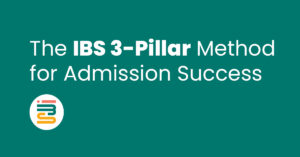Mentorship is a powerful tool that can help you grow in your career. It’s like having a guide who knows the way and can show you how to get there. A good mentor shares their knowledge and experiences, helping you make better choices as you move forward in your job. Custom mentorship for career growth takes this idea further. Instead of following a one-size-fits-all approach, it focuses on what you specifically need. This means you get advice and support that is made just for you, which can be incredibly helpful for your career growth.
So, what is custom mentorship for career growth? Unlike traditional mentorship, where a mentor might help several people at once, custom mentorship for career growth is all about you. Your mentor will listen to your goals and challenges and help you with a plan that fits your unique situation. This personal touch is important because everyone has different dreams and needs. When you find the right mentor who understands your goals, it can make a big difference in how you develop your skills and confidence.
In this article, we’ll read through at the 9 easy steps to help you find the right custom mentor for your career. With the right guidance, you can take your career to new heights and achieve your dreams. Let’s get started on this exciting journey
What is Custom Mentorship
Defining Custom Mentorship For Career Growth
Custom mentorship for career growth is a personalized mentorship approach to guidance in your career. Unlike traditional mentorship, which often follows a one-size-fits-all model, custom mentorship is all about you. It takes into account your unique goals, challenges, and strengths. This means that the advice you receive is specifically designed to help you grow in your career.
Why It Matters for Career Development
The personalized mentorship nature of custom mentorship is important because everyone’s career path is different. What works for one person may not work for another. By focusing on your individual needs, a custom mentor can provide insights and strategies that align with your specific aspirations. This tailored guidance can lead to greater success in your career journey.
Read More: how to write a cover letter for employment
Benefits of Custom Mentorship for Career Growth
Now that we understand what custom mentorship for young professionals is, let’s look at some of its key benefits for your career growth.
- Personalized Guidance and Support
A custom mentorship for career growth offers advice that directly relates to your career goals. This means you get support that is relevant and applicable to your situation. Whether you’re trying to climb the corporate ladder or switch careers entirely, a mentor can help you map out your journey.
Curious about the benefits of elevating your career to the next level? Reach out to IBS Consulting and book your FREE consultation to discover more!
Book Your Free Consultation
- Skill Development Tailored to Individual Goals
With a custom mentor, you can focus on developing skills that matter to you. Maybe you want to improve your communication skills, learn about leadership, or gain technical knowledge. Your mentor can guide you in these areas, ensuring that you’re working on what will benefit you the most.
- Networking Opportunities
Mentors often have extensive networks. When you work with a custom mentor, you may gain access to their connections. This can open doors to new job opportunities, collaborations, or introductions to industry leaders who can help you on your path.
Read More: best resume writing tips for international students
- Confidence Building
Having a mentor who believes in you can boost your confidence. They can help you recognize your strengths and encourage you to take on new challenges. With their support, you’ll feel more equipped to tackle obstacles and pursue your dreams.
9 Steps on How to Find the Right Mentor
Finding a mentor for career success can feel like a big task, but it can also be a rewarding experience. A mentor can guide you, offer advice, and help you grow in your career. Here are nine simple steps to help you find someone who fits well with your goals:
- Assess Personal Career Goals
Before you start looking for a mentor, take a moment to think about what you really want to achieve in your career. Ask yourself questions like: What do I want to do in the next year? What are my dreams for the future? It can be helpful to write down your goals, both short-term (like getting a new job) and long-term (like becoming a leader in your field). This list will act like a map and help you find a mentor who has experience in the areas where you want to grow.
Consider different aspects of your career, such as the skills you want to learn or the roles you wish to explore. You might even want to think about the kind of workplace environment you thrive in or the values that are important to you. A mentor who understands your goals can provide advice that is more relevant and helpful.
- Research Industry Leaders
Next, think about people in your field who you admire. These might be professionals whose work you respect or those who have accomplished what you dream of doing. Make a list of these potential mentors. You can find them through online searches, industry publications, or even through your network of friends and colleagues.
Look into their careers: What paths did they take to get where they are? What challenges did they overcome? Understanding their journey can not only inspire you but can also give you insight into what it takes to succeed in your field. This way, you can find someone who matches your aspirations and can share valuable lessons from their own experiences.
- Utilize Platforms for Finding Mentors
Today, there are many platforms that help connect mentors and mentees. Websites like LinkedIn, MentorCity, and industry-specific forums can be excellent places to find mentors. When you create a profile, be sure to highlight your interests and goals. This will make it easier for potential mentors to see how they might help you.
When reaching out, be polite and direct. Let them know what you are looking for and why you think they could help. A clear, friendly message can make a positive impression and increase your chances of getting a response. Remember, the goal is to build a relationship, so be open to conversations and connections.
- Consider Educational Institutions and Alumni Networks
If you are a student or a recent graduate, your school’s alumni network can be a treasure trove of resources. Many universities offer mentorship for young professional programs that connect students with alumni who are eager to help. Don’t hesitate to contact your school’s career services or alumni office to see what opportunities they have available.
When you connect with alumni, be sure to ask them about their experiences and how they got started in their careers. They may have insights that are particularly useful for someone in your position. Plus, they understand the challenges you might face, having gone through similar experiences themselves.
Interested in learning more about the benefits of professional development? Call IBS Consulting to schedule a FREE consultation right away!
Book Your Free Consultation
- Attend Networking Events
Attending events related to your industry is another great way to meet potential mentors. Look for workshops, seminars, and conferences where you can connect with professionals. These events not only allow you to meet people face-to-face but also give you a chance to learn from experts in your field.
When you attend these gatherings, be open to conversations. Introduce yourself to people you admire and don’t be afraid to share your goals. You never know when a simple chat might lead to a mentorship opportunity. Bring business cards if you have them, and make sure to follow up after the event if you meet someone interesting.
- Use Social Media
Social media is not just for staying connected with friends; it can also be a powerful tool for finding mentors for career success. Platforms like Twitter and Instagram allow you to follow industry leaders and engage with their content. Start by following people whose work inspires you, and take time to comment on their posts or share your thoughts.
When you interact with their content, you begin to build a connection. After some engagement, consider sending a direct message to express your admiration for their work and your interest in learning from them. Just remember to keep it respectful and friendly, as many professionals appreciate genuine interest.
- Be Open to Informal Mentorship
Mentorship for young professionals doesn’t always come from someone you formally approach. Sometimes, you can find mentors in your everyday life. Look for opportunities to learn from colleagues, supervisors, or even friends. These informal relationships can provide valuable guidance and support.
Even casual conversations can lead to insights that help you grow. Ask for feedback on your work or seek advice on challenges you face. The key is to be open to learning from those around you, as they may have knowledge and experience that can benefit you.
Read More: 3 pertinent questions to ask after a job interview
- Reach Out with a Purpose
When you identify someone, you want to approach, it’s important to reach out with a clear and respectful message. Start by explaining why you admire their work and how you believe they can help you. Be specific about what you are looking for, whether it’s advice on a particular topic or general guidance.
A thoughtful introduction can go a long way in making a good first impression. Make sure to keep your message short and to the point. If they agree to connect, be ready to ask questions and engage in meaningful conversations.
Read More: handling your first job in Canada as a Ghana student
- Follow Up
If you don’t hear back from someone right away, don’t be discouraged. Many people are busy, and it might take time for them to respond. A polite follow-up message can show that you are genuinely interested and determined to connect.
In your follow-up, you can thank them for their time and reiterate your interest in learning from them. Keep it friendly and respectful, as this can help build a positive rapport. If they still don’t respond, it’s okay to move on and seek out other potential mentors.
Tips for a Successful Mentorship Experience
Once you’ve found the right mentor, it’s important to make the most of your relationship. Here are some tips to ensure a successful mentorship experience:
Crafting a Compelling Introduction
When you first meet your mentor, make a strong introduction. Share a little about yourself, your career goals, and why you sought their guidance. A clear introduction sets the tone for your relationship.
>Contact us
Setting Clear Goals and Expectations
Be upfront about what you hope to achieve from the mentorship. Discuss your goals and what you expect from each other. Setting clear expectations can help both you and your mentor stay aligned.
Maintaining Communication
Regular communication is key to a successful mentorship. Schedule check-ins, whether they’re weekly, bi-weekly, or monthly. Consistent communication ensures that you’re making progress and allows for adjustments to your goals if needed.
Mentorship Platforms and Resources
If you’re looking for mentorship as young professional, here are some online platforms and resources you can explore:
- LinkedIn: A professional networking site that allows you to connect with industry leaders and potential mentors.
- MentorCity: A platform designed specifically for mentorship matching.
- Meetup: Use this site to find local events and groups related to your industry.
- Your Educational Institution: Check if your school offers mentorship programs or resources.
Common Challenges in Mentorship and How to Overcome Them
Even the best mentorship relationships can face challenges. Here are some common obstacles and how to overcome them:
Mismatched Expectations
Sometimes, you and your mentor may have different expectations. To avoid this, have open conversations about what each of you hopes to gain from the relationship. Regular check-ins can help realign your goals.
Read More: job interview coaching for international students abroad
Communication Issues
Effective communication is crucial. If you’re having trouble connecting, address it directly with your mentor. Discuss your preferred communication styles and find what works best for both of you.
Time Constraints
Busy schedules can make it hard to find time for mentorship. Be respectful of your mentor’s time and suggest a schedule that works for both of you. Even short, focused meetings can be valuable.
Conclusion
Custom mentorship for career growth strategy is a powerful tool for career mentorship. It provides personalized guidance, supports skill development, and opens doors to networking opportunities. By following the steps outlined in this blog post, you can find the right mentor who will help you on your journey to success.
Take the initiative to seek out mentorship. Remember, it’s not just about finding a mentor for career success to guide you; it’s about building a relationship that can shape your career. If you’re looking for the best mentors personalized for your career mentorship growth, reach out to IBS Consulting. They offer tailored mentorship programs to help you achieve your career goals.
What are your thoughts on mentorship? Have you had a mentor before, or are you considering finding one? Share your experiences or questions in the comments below!





